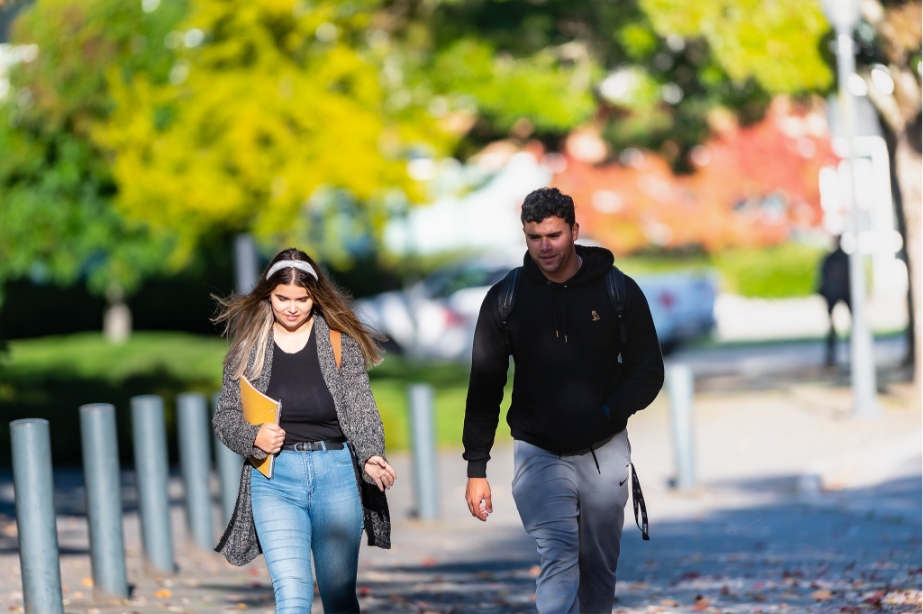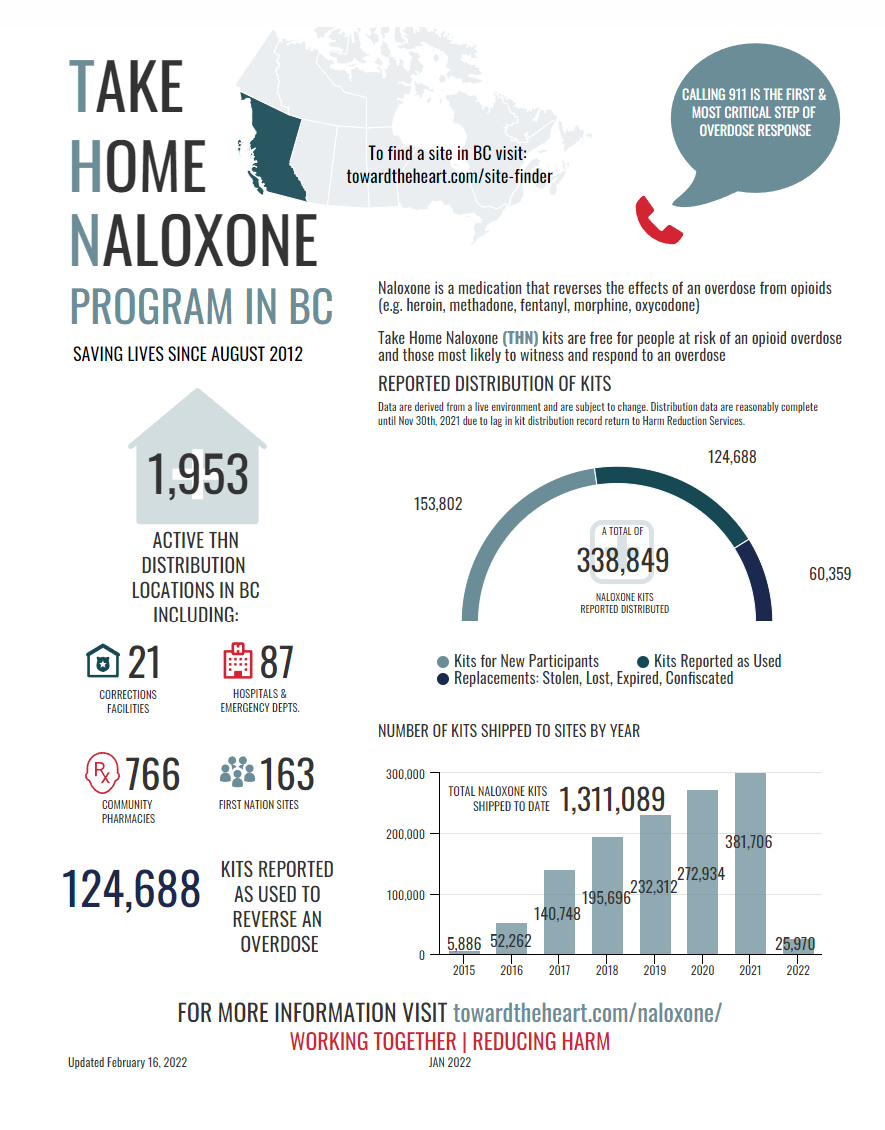PREVENTING HARM FROM SUBSTANCE USE

Prevent harms from BC’s toxic drug supply with the right strategies and tools.
HaRT offers evidence-based strategies that reduce your risk of harm from the toxic drug supply. We support people who use drugs, and the people who love people who use drugs, with information and resources.
We work hard to support our community through numerous harm reduction resources. Our team is usually working on several campaigns at once, collaborating with partners, and cheering on fellow harm reduction organizations. As a result, we are constantly adding to and adapting our resources. We provide naloxone training and distribution, sterile supplies, take-home fentanyl test strips, support service referrals, education, and more!
We have the power to change policies, demand action, and prevent harms from the toxic drug supply. With the right tools and resources, we can create stronger communities.
Ways to Reduce Your Risks
1. Use the BUDDY System
Use with a buddy or at overdose prevention sites. If you choose to use alone, get someone to look in on you and call for help if needed. Try not to be alone or make sure that a friend or family member are aware of where you are and what you are doing. This is called SPOTTING and it can save lives. Find out more on this website.
2. Start Low, Go Slow. One Drug at a Time.
If you are using a new drug or have a new source, test a small amount first, then go slowly. Using more than one substance increases the risk of overdose. Mixing your drugs (including prescription drugs) with alcohol or other substances is dangerous. If you do mix, use less than you normally would and go slowly. If you can manage it, Get Your Drugs Tested!
3. Visit an Overdose Prevention Site
Overdose prevention sites are managed by health authorities in co-operation with community partners across the province. These designated spaces, which are integrated into existing social service or health care settings or in newly established locations, provide on-site monitoring for people at risk of overdose and allow for rapid response when an overdose occurs. Get Your Drugs Tested!
4. Carry Naloxone. Have A Plan
Be prepared if an overdose happens. Get training and carry naloxone. Make sure your friends and family know where it is kept and know how to use it.
5. Download the Lifeguard App
This life-saving app which can be downloaded from the Apple App Store or Google Play Store, connects you to emergency responders if you become unresponsive. The app is activated by the user before they take their dose and depending on the chosen settings will alarm and then send a text-to-voice call to 9-1-1, alerting emergency medical dispatchers of a potential overdose.
6. Be Aware of Your Health
Being sick, run down or having a chronic illness can increase the risk of overdose. Your tolerance can also be lower if you haven’t used for a while, or if you are using a substance for the first time.
7. Call 8-1-1 for Information
Call 8-1-1 to find out how to access harm reduction services and supplies, and treatment and recovery options.
List of Materials/Supplies at our Site
- Packaging for Drug-Checking Samples: tinfoil, small plastic baggies, envelopes, sample collection forms
- Drug-Checking At Home: fentanyl test strips, small plastic cups, instructions
- Toxic Drug Poisoning Prevention: naloxone kits, informational resources
- Sanitary Supplies: cookies, filters, needles, syringes, vitamin C, condoms, wooden push sticks, water vials, alcohol swabs, safe needle disposal containers
- Educational Material: pamphlets, posters, cards for mental health resources, substance use support, toxic drug poisoning and prevention, and anti-stigma
What you will find onsite at the HaRT location…
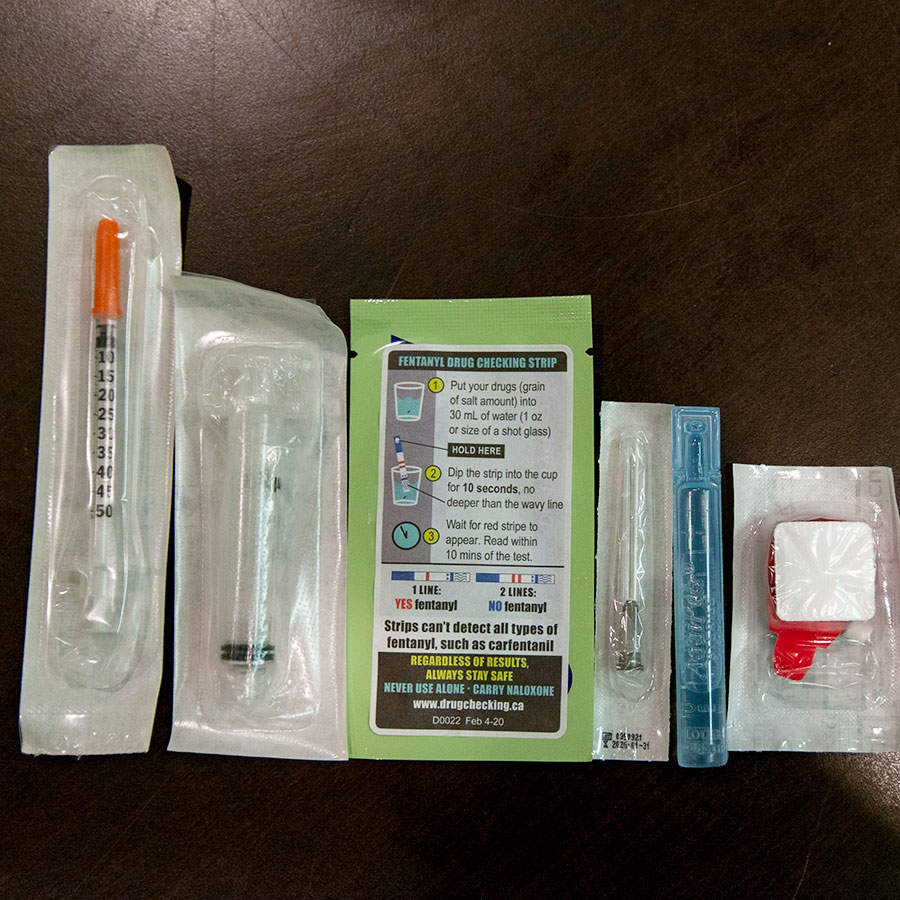
Injection Kit
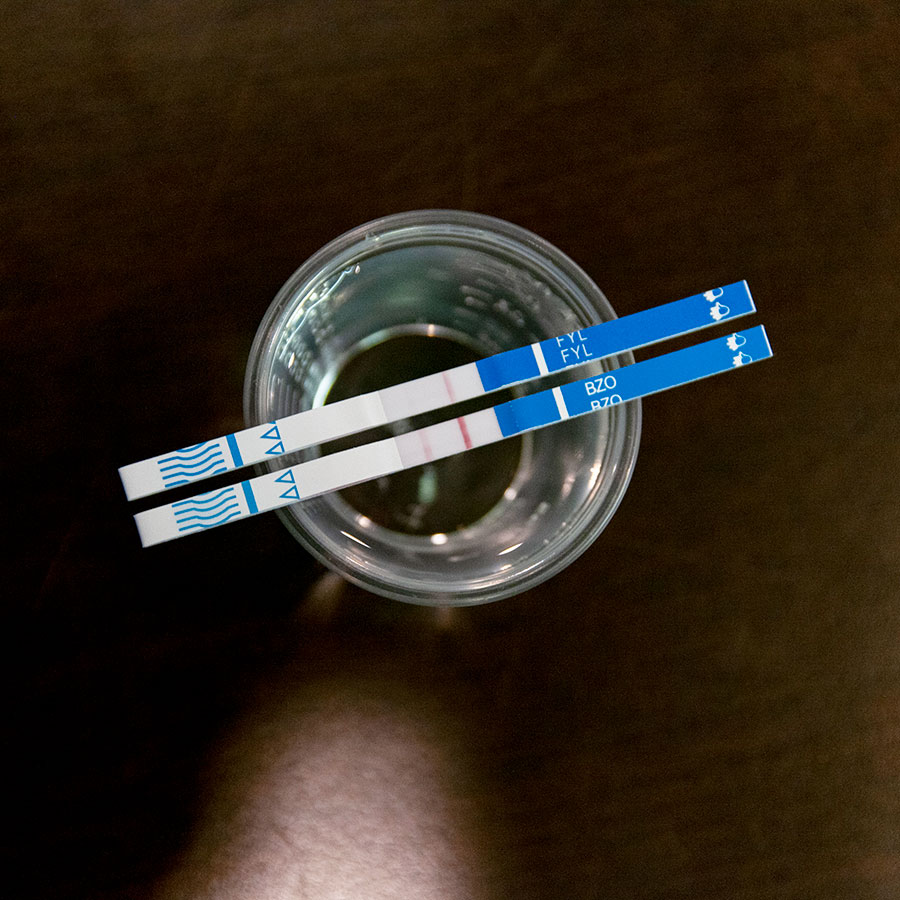
Test Strips
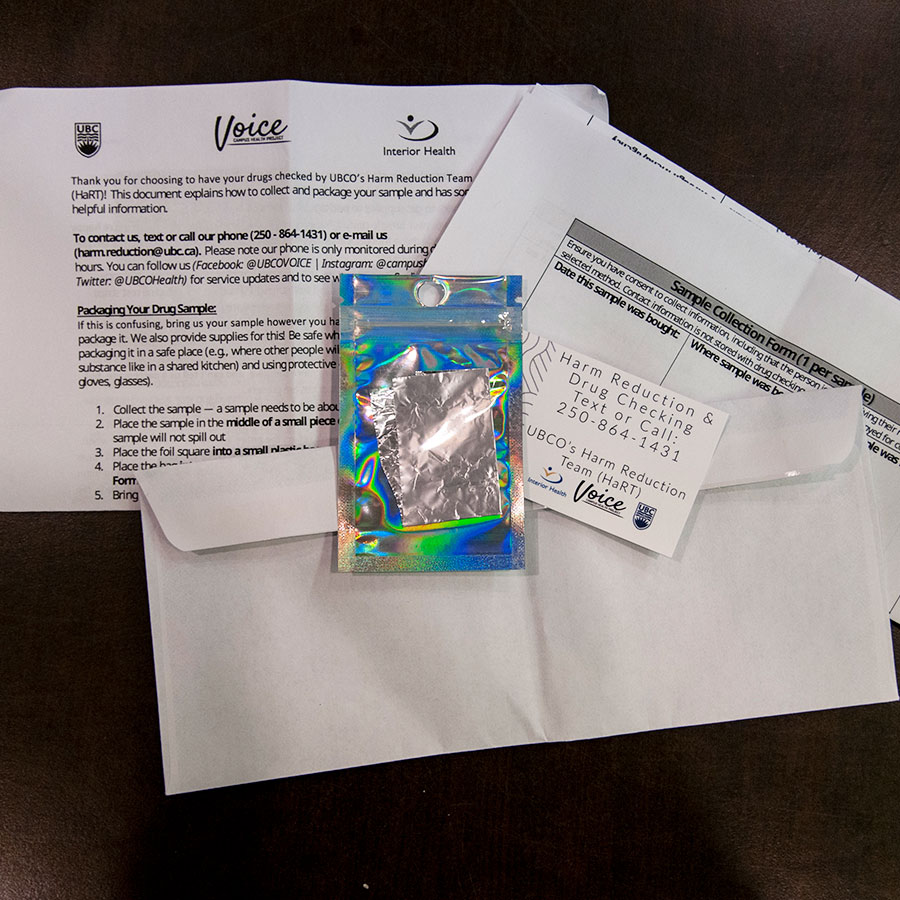
Sample Kits

Drug Checking
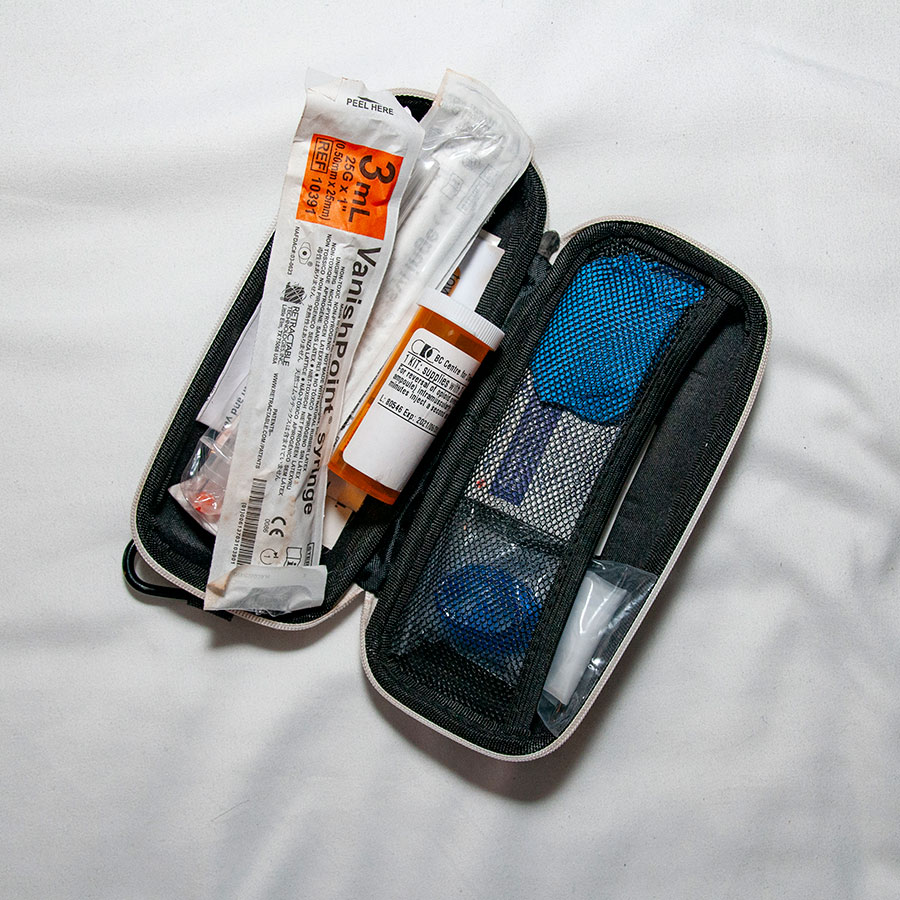
Naloxone Kits

Education
What is Naloxone
Naloxone is a free, publicly available medication that can reverse a drug poisoning. People can experience a drug poisoning when they consume something they were not expecting to consume, or when a drug is stronger than they expected. When someone receives naloxone, it reverses the effects of opioids and can save their life!
You do not need a prescription for naloxone. We provide kits to anyone who requests one, as well as training. Training is very simple, and only takes about 10 minutes.
The BC Center for Disease Control started the Take Home Naloxone program in 2012. Now, there are over 1300 sites participating across BC. We are happy to be one of them.
Overdose or Drug Poisoning – What’s the difference?
An overdose means someone took more of a drug than their body could process. Most of the harms from toxic drugs are not because of an overdose though. Like many harm reduction folks, we have changed our language to ‘drug poisoning’ instead. A drug poisoning is when someone uses a drug they did not expect to use. Or, they use a stronger concentration. These things can happen when we do not know what is in our drugs. Since illicit drugs in BC are unregulated, it is good to check your drugs before using them.
Click on the infographic to see larger version
Links to Training Resources
BC Naloxone Training Site
Learn the signs of a drug poisoning and how to respond in this brief online training course.
How to Use Naloxone
Learn how to use naloxone to treat a drug poisoning.
Get Informed
Find more information about the risks and signs of a drug poisoning as well as how to respond.
Join us for Naloxone Training!
MYTH: People should just stop using drugs!
FACT: People use drugs for many reasons – to connect, celebrate, medicate, grieve, and more. Drugs have been used for centuries, and access to information and community allows people to use drugs in lower-risk ways. Drugs like alcohol, sugar, and tobacco all have accessible information that allows people to make informed choices. People should make the choices that are best for themselves – and they are the experts on that.
Click on Links to View More Services
REDUCE HARM
DRUG CHECKING
SUPPORT RECOVERY
LOCATIONS/HOURS
